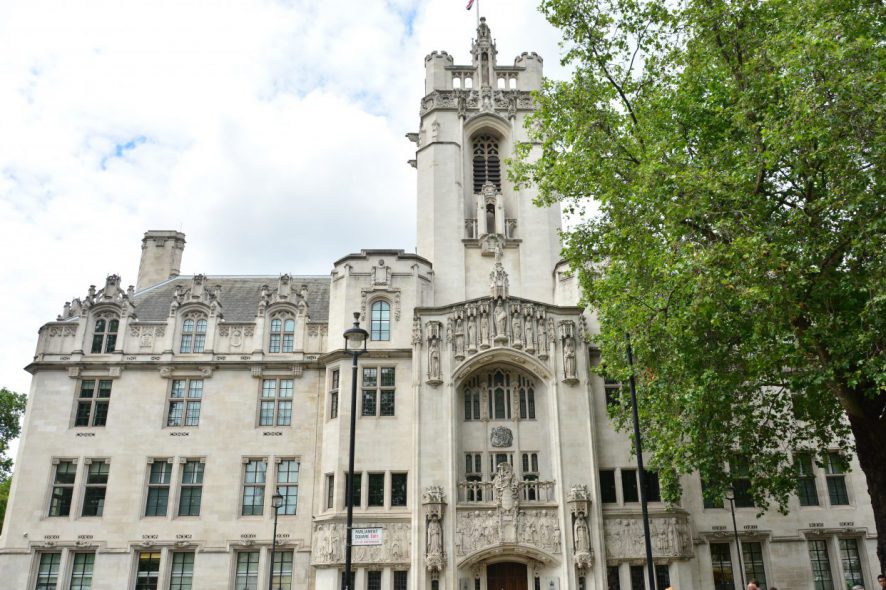Supreme Court of United Kingdom: In the instant case where the question was that whether the Court has jurisdiction to direct members of a charitable company on how to exercise their powers in the absence of a breach of fiduciary duty, the 5 Judge Bench of Lord Reed, J. (President), Lord Wilson, Lord Briggs, Lady Arden, and Lord Kitchin, JJ., citing the instant case to be a rare exception to the principle of non- intervention, held unanimously that members of charitable companies have fiduciary duties, therefore the Court has jurisdiction to direct the members vis-à-vis exercising their powers in the absence of a breach of fiduciary duty. It was further observed that the Court’s priority is to see that fiduciaries for the charity perform their duties in the way most likely to achieve its continued existence notwithstanding what has been held to be in effect an existential threat to the proper governance of the charity.
The Children’s Investment Fund Foundation (CIFF) is a charitable company founded by Sir Christopher Hohn and Ms Jamie Cooper in 2002, helping children in developing countries. These proceedings stem from the steps the founders took to resolve difficulties arising in the management of the company after their marriage ended. Specifically, they agreed that in exchange for a grant of $360 million to Big Win Philanthropy, a charity founded by Ms Cooper, she would resign as a member and trustee of CIFF. Under Section 217 of the Companies Act, 2006, and Section 201 of the Charities Act, 2011 payments by a company in connection with the loss of office of a director (here Ms Cooper) must be approved by the members of the company and the Charity Commission. CIFF had only three members, two of whom, namely Sir Christopher and Ms Cooper had to recuse themselves from the vote.
Thus, only Dr Marko Lehtimaki could vote on the proposal. The Chancellor of the High Court held that the grant would be in CIFF’s best interests and ordered Dr. Lehtimaki to vote for the resolution approving the grant. Dr Lehtimaki appealed against that order, and the Court of Appeal allowed the appeal holding that, in the absence of a breach of fiduciary duty, the Court could not direct Dr Lehtimaki on how he should exercise his powers. Ms. Cooper therefore preferred an appeal to the Supreme Court seeking an order requiring Dr. Lehtimäki to vote in favour of the resolution. Per contra Dr. Lehtimäki and Sir Christopher Hohn contended that no such order can be made as a member is not a fiduciary; even if he was, then there is a principle of trust and charity law that the Court does not generally intervene in the exercise of a fiduciary’s discretion unless he is acting improperly or unreasonably as per the non-intervention principle; and, that Section 217 precluded the Court from giving Dr Lehtimaki the direction to vote.
Perusing the contentions, the provisions concerned and the principle of non-intervention, the Court observed that the distinguishing characteristic of a fiduciary is that he owes a single-minded duty of loyalty in matters covered by his duty. A member of a charitable company in principle owes this duty. A charitable company itself is analogous to a charitable trustee, in the sense that it holds its assets subject to a binding obligation to apply them for charitable purposes only. It was further observed that the concept that a fiduciary is entitled to form his own subjective judgment about a matter assumes that there are different conclusions about the matter which might reasonably be reached.
The Court noted that this care is a rare exception to the non-intervention principle because of the existential threat to CIFF caused by the deeply felt dissension between the two founders. Charities operate within a public law framework, where the Court does not in general substitute its own judgment for that of the decision maker. However, the purpose of Section 217 of Companies Act, 2006 is to ensure adequate disclosure to, and approval by, the company’s members, and the right to vote can be restricted by the company’s constitution. In circumstances, where the matter is internal to the charitable company, the Court can in an appropriate case direct one of its members how to vote. [Lehtimaki v. Cooper, [2020] UKSC 33, decided on 29-07-2020]







